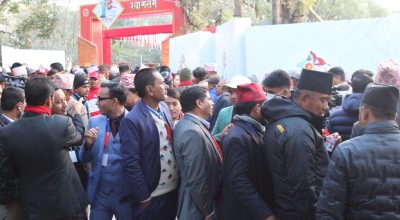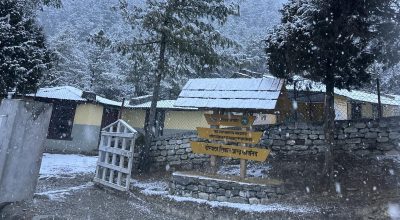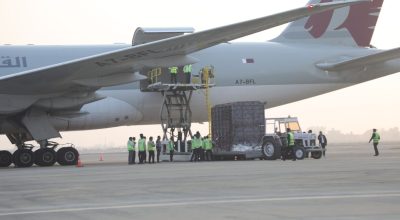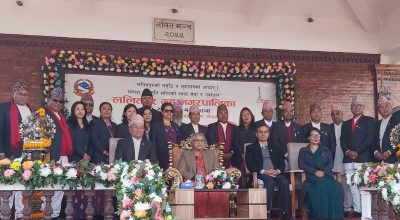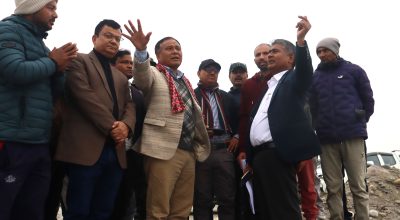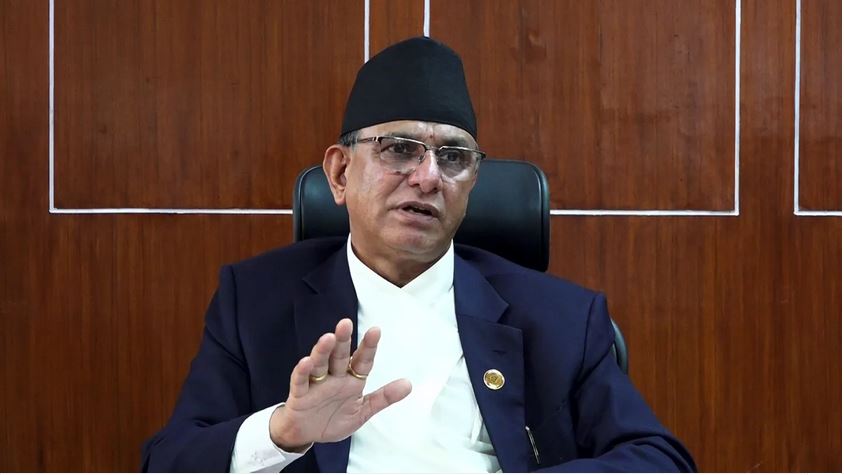
KATHMANDU: The government has Rs 483 billion in arrears as of mid-July 2021 as the amount increased by 15.46 percent in the last fiscal year 2020/21 (mid-July 2020 to mid-July 2021). In the report released recently by the Office of the Auditor General, it has been shown that the arrears have increased by Rs. 115 billion in the last one year.
Arrears amount is increasing every year in Nepal. According to the report, the problem is that the government agencies will make plans but do not complete the work on time and the budget will not be spent on time. The News Agency Nepal (NAN) has talked with Auditor General Tanka Mani Sharma about the various aspect of arrears and financial handling of the government.
Auditor General Sharma said that US$ 420 million are spent every year in Nepal from outside the government budget system. He has also said that auditors have been hired by some foreign aid agencies to conduct their separate audits. He has also clarified that it was not acceptable to the Office of the Auditor General (OAG), the Supreme Audit Institution of Nepal. He further said that the OAG has again advised the government to bring the foreign aid within the budget system.
How was the government’s arrears in fiscal year 2077/078 BS?
Sharma: It seems that the government’s arrears have slightly reduced in the previous financial year and FY 2077/078 BS. Last year, the government has modified and updated the operation modalities of financial matters, and termed that the unexpired advance payment will not be considered arrears. That’s why it seems to have decreased arrears a bit this year. But if you add advance payment, it will be the same. The arrears was Rs 418 billion last year. This year, the deficit was nearly Rs. 50 billion. This accumulated arrears was of the government offices for the last 18 years.
The biggest problem has been in revenue dues. It includes internal and all other types of revenues. It was Rs 215 billion in the previous year. This time, such claims are increasing even more, adding Rs. 97 crore this audit year. In total, Rs 312 billion has remained dues so far, which itself a bigger challenge.
This increase means that arrears has increased and the arrears settlement was there of Rs. 50 billion. 40 percent arrears is under Ministry of Finance alone. The 12 ministries involved more on development works have arrears more than 90 percent.
Government ministries are unable to spend even the government budget, how has the Accountant General viewed this?
The government’s budget expenditure for the FY 2077/078 has remained 89 percent. Capital expenditure stood at 64.84 percent. Principal and interest payment has remained at 70 percent as part of financial management. Overall, the capital expenditure has been only 81 percent. According to the budget estimates, only 60 percent has been spent on other financial matters. Only 65 percent has been spent on other social security and 43 percent on health sector.
The government’s capital expenditure has decreased, current expenditure is high, and other indicators remained dismal. What’s the role of Auditor General in such cases?
We have, so far, commented on 155 thousand topics. A total of 155 thousand remarks have been inserted. We have said that the amount to be recovered was Rs. 33 billion, which is 29 percent. Regularization amount stood at 60 percent (Rs. 69 billion). The biggest problem remains regularization of advance payment. First, there is a problem in mobilizing resources.
The tax scope could not be expanded in this period, and the revenue depended mainly on imports. Revenue mobilization remained very low. Likewise, revenue leakage was not controlled. The goods were not assessed properly at the customs point itself. Revenue was exempted but there was no monitoring system.
Similarly, there was no investment in accordance with foreign commitments. Foreign direct investment could not increase either. Such problems were observed in resource mobilization. The priority selection of the project was not good. The plans were not completed on time. Evaluation and monitoring of the project was not result-oriented. Inflation has gone up beyond the limit. The economic growth rate remained low. Foreign exchange reserves were decreasing. Exports could not increase compared to imports. Total investment and national savings could not increase.
Likewise, the burden of foreign debt was increasing. The informal economy could not be controlled. Staff management was not good. There was also a problem in the smooth handling of federalism. Coordination between federal, state and local levels was not good. Financial monitoring and regulation could not be done properly. We have clearly shown such issues in the report. These are all hard facts, and the high-ranking government officials have remained indifference on solving these matters.
In such scenario, who was responsible to increase arrears, politicians or government employees or people’s representatives?
We can evaluate an employee’s financial responsibilities and their performance through Financial Comptroller General Office (FCGO). This is a simple mechanism to be followed. However, we have found that the employees were unaware on their duty or simply they ignore the set practices. They were unable to submit the accounts on time, does not settle the discrepancies on time and does not submit the documents. We have instructed many times, and raised the issue in different forums. Out of 155,000 remarks, more of them belong to failings to submit documents in the account system. It has been said for a decade to reform the system of transferring money. We have raised issue of not spending or releasing money in the last hour of the fiscal year, but it has not materialized. If the state coffer has been disbursed and spent at the end of fiscal year, the Auditor General cannot determine whether it has been spent or not.
How much foreign aid has been spent each year through the budget, and outside the budget system? Have you also examined it?
The Auditor General separates the amount spent each year through the foreign aid budget and from outside. It seems that US$ 420 million have been spent from outside the budget system. Likewise, material help has also come. Some of the foreign aid agencies are hiring auditors to conduct separate audits as well. We generally did not accept that. We have said that an audit should be done through Nepal’s Auditor General. Although some organizations used to say that their audit have been completed, but we have not accepted such claims. We have repeatedly suggested government to bring foreign aid to government budget system. Now, foreign agencies have begun to request to conduct audit through Nepal’s Auditor General. The main issue is the inclusion of foreign assistance in government accounting system.
People have continuously voiced concern about the audit of agencies like MCC by the Auditor General. What’s your opinion?
There was no doubt that the Auditor General would audit of the Millennium Challenge Corporation (MCC). The previous year’s report has written in detail about MCC. The audit of MCC has also been done for the third year by the Auditor General. It’s not our concern for their own audit, but we have right to audit of the MCC compact and we have already audited the program.
Have you faced any financial and legal complications while conducting audits of the government offices?
As being a constitutional body, many things have to be managed by OAG itself. The Constitution of Nepal has enshrined specific rights and duties to the auditors of Nepal. Nepali audits have been given more rights than those given in many other countries. Mostly, the auditors would not get right of justification. But, we have a provision of rights of justification, which itself a unique case. We can raise concern over any programs even if any such programs have already accomplished following due financial process. We can stop programs related to natural resources, revenues, granting the lease license or permission, etc which deem irregularities.
According to international practice, the Supreme Audit Office should have autonomy and independence in three or four aspects. We have freedom according to the constitution but lack of autonomy and freedom in behavior and practice.
There are employees of the Government of Nepal in the Office of the Auditor General of Nepal. This is a big problem. The government carries accounting administration and operation. In fact, OAG should have such rights. When the auditors act outside the discipline, OAG has to appeal to others for action.





